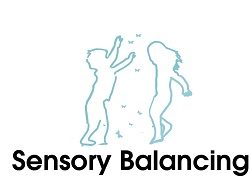Sometimes it seems like every other kid is diagnosed with ADHD (Attention deficit hyperactivity disorder) a or SPD (sensory processing disorder). Hearing this from so many parents made me think, at first, that maybe professionals were just handing out these dubious titles out right and left. Over time, I noted all the behaviors I observed and felt the diagnoses were spot on. Some of them had eye tics, others vocal tics, most of them always seemed to be hungry, many times I would witness outbursts, “meltdowns” and other typical behaviors. The thing that was common in all these cases was very clear – these kids had the tendency to completely “overreact.” Now before you jump and say that that’s an awful thing to say about a child, let’s take a moment.

After working with many similar cases, I realized that the behavior was a result of the way their brain was interpreting situation. Their “processor” was exaggerating the signals it was getting and it simply was not proportional to what had occurred in reality. To them the “sky was falling” and no amount of persuasion or attempts to calm them could convince them otherwise. The worst part about is that other people can not “get into their brain” to see what they see and understand how they are experiencing a situation. Feeling misunderstood leads to a downwards behavioral spiral. Often in this case, children will be given a prescription for controversial meds that will in effect calm them down, but that’s just symptomatic. What about the root causes for this? Unless it’s resolved, it will keep occurring and being “calmed” through meds. What if I told you it didn’t have to be this way? What if you could simply help the brain “reboot” through balancing the body and it’s chemicals so that they are able to process this stress more efficiently? It’s possible. But first, let’s get a better understanding of what’s causing this.
Zooming in on “Stress”
Imagine there is a stressful situation in the classroom, and most kids would rank their stress level at 4 out of 10. A child whose brain is lacking the filters might experience a 4 as a 12, and act accordingly. So not only do they experience a lot of stress, they also suffer from the consequences – being punished or just having other kids (and sometimes the teacher) dismiss them, or simply not understand how they feel, making them the subject of ridicule and shame. And there’s a good reason they are feeling so much stress – their brain interprets the situation this way.
I have been working with kids with such disorders with Acupuncture, Shiatsu, Pediatric Tuine and herbs for years, but when I combined Kinesiology, I was able to find out not only the child’s sensitivities but also the “why” – what was causing them. Often these kids were sensitive to various foods, different for every kid; some might be sensitive to gluten and that might also affect their behavior, for others it might be Vitamin C and Nightshade vegetables, and some are sensitive to so many foods they are eating that additional symptoms have manifested – such as eczema, a constant runny nose, sleep difficulties, etc. When parents started to connect the dots – they were astounded. It was one of those “aha” moments – “Why didn’t I realize this sooner?” It’s never too late to treat these symptoms and see significant emotional and physical improvement – rather than letting it drag into teenage and adult years.
The only sensitivity that was the common in all of these cases was the child’s skewed interpretation of stress. So the best, most immediate thing you can start with is to understand this so you can better understand your child and empathize with them, which will in turn make them feel more accepted and prevent any additional stress building on top.
Our Brain is Being Constantly “Bothered” by Sensitivities
Imagine yourself at the office, trying to get things done and being constantly interrupted. What is the quality of your work that day? Now, imagine your body is constantly being interrupted from doing its “work” by various things it recognizes as allergens. They might be environmental like pollen, weeds, grass, etc. It could be foods such as yeast, dairy, vegetable fats and other things that the body mistakenly recognizes as “enemies” so it lets them “bully” it. In some cases, you would just see a running nose, rashes, or a kid that “catches” any virus that passes by. But sometimes it affects their behavior as well since their brain is constantly being “bothered” by the fact that there is “something” the body isn’t reacting well to. And this causes agitation, stress and often, extreme behavior that can be very frustrating for those around them. Wouldn’t it make more sense to simply get rid of the allergen/s rather than getting mad at the the child for something they have no control over?
In some cases, it’s sufficient to merely omit the allergen, if it’s only gluten or only dairy etc. it’s not that difficult. Within a few days, parents often see a significant improvement in a child’s sleep patterns and they seem calmer and more focused. But in some cases there could be a complex combination of sensitivities in basic food groups or inhalants (such as dust, pollen), requiring either treatments and/or dietary changes. Each child is different, and from my experience, there is no one protocol that suits all, each child needs an individual diagnosis to tailor the most suitable treatment plan. It may sound complex, but doesn’t have to be and remember, it’s about getting to the root of the problem, not alleviating the symptoms.
How can SB (Sensory Balancing) help?
With SB, we can diagnose what is causing these emotions to be “amplified” and by using acupuncture/acupressure points, we perform a small “reboot” to teach the brain to read the situation as it really is without a “magnifying glass.” This might take a while to treat, but often in-between session you start noticing some changes like sleep improvement, clear skin, tics subsiding, increased appetite becomes a healthy appetite, etc. in some cases it is also better to treat the element that initially caused the “magnifying glass” to appear.
What else Might Help?
- Body work – Either taking them to someone who does pediatric massage and/or someone who can teach you to perform some basic massage at home which helps reduce stress levels.
- Occupational Therapy – Appropriate OT can change the neurological functioning in children with SPD so they can manage their responses to sensations and behave in a more functional manner.
- Adjusting Diet – Work with a nutritionist that specializes in sensory issues to adjust the diet, ie, add magnesium, healthy fats, Vitamin B etc., but in a way that is specific to your child’s needs.
- Mindfulness – Research Shows that practicing Mindfulness has physical and mental benefits such as reduction of stress. There are some apps that can be downloaded for practicing at home.
But, as I mentioned before, in my opinion, the most important thing is understanding what your child is going through, and supporting them, not saying things like “you’re overreacting” or “calm down” which can invalidate their feelings, causing them further stress. If they feel that you understand them, that already may serve to help calm them, which is a win in itself.

If you would like to discuss your child’s case prior to bringing them in, please send an email so we could schedule a free 10 min phone consult.
Diclaimer: Information and statements made here are for education purposes and are not intended to replace the advice of your doctor. The views and nutritional advice expressed in this blog are not intended to be a substitute for conventional medical service. If you have a severe medical condition or health concern, see your physician.
